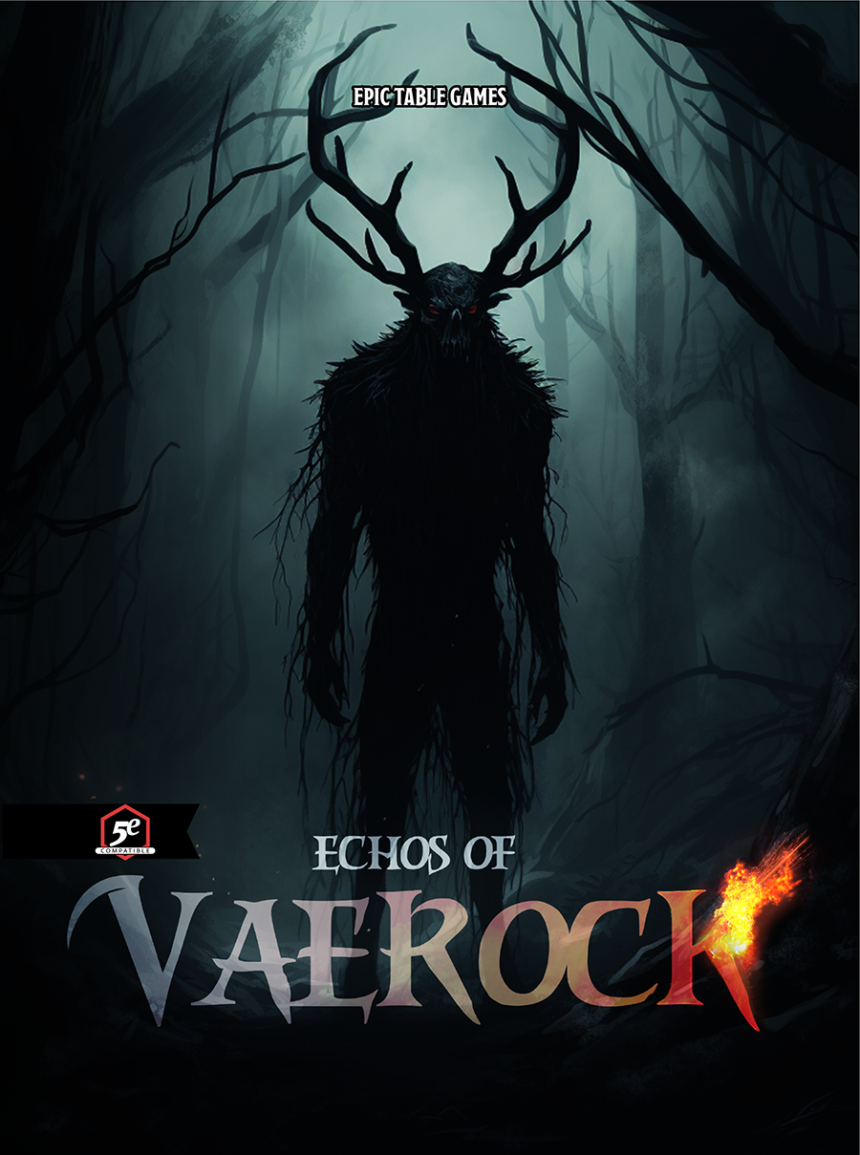It takes a long time to hone your craft, regardless of what your craft may be. For me, I have spent time professionally in marketing, design, film, carpentry, and tool and die repair. None of these have anything to do with dungeons and dragons on the surface, but after spending twenty plus years in the hobby I would say that I have a clear grip on how to tell an amazing damn story. Something that has been lamented by my players, my editor, and my published works. But why talk all of this up if I nuked an entire game before it began?
It really came down to one comment made by a player who I had ignored a few reflags from, and while there were multiple comments, the one in particular had truly tested my mettle as a storyteller who spends his life building worlds and crafting plots for various forms of media. The phrase in question? “Maybe I’m just more creative than you.”
Now, maybe they were right and maybe they were incredibly off base, but the red flags at this point were no longer ignorable. Similar phrases included “Maybe I’m just smarter,” and “Why are you turning this around and making it seem like I’m being selfish?”
Of course, painting the light in this color feels like it’s a rant about specific person and while that may hold some truth to it, it’s truly about catching red flags and nuking a project before you’re too far into it to let it go easily. This player had presented an amazing opportunity to build a table full of ready to engage role players. They didn’t feel like they fit with any one in my current campaigns, so I offered to run for them if they build the group so they could have players they felt they could vibe with.
This potentially set me up to have an entire party of people with similar mentalities and traits that I naturally do not vibe with mine. But, currently digressing I can only say I’m sure we had dodged a bullet for the sake of everyone’s sanity.
If you’ve followed along with the our podcast, SideQuests! You know that I’m in the midsts of building an entire campaign setting and unlike the normal methods of building a world and plunking my players in to I have decided to build a world around my players. Their backstories were the fodder for my world, and the catalyst for their placement within Animar.
In order to do this, I provide all of my players with a structure to follow along with a character background assistant they can use if they choose to do so. The only required portion of all of this is the Knife Theory, which we absolutely did cover in an early episode of SideQuests! If you haven’t listened to that episode, please check it out because we go much more in-depth than the following two sentence synopsis presented here:
The knife theory is designed for a game masters players to choose a few named people from their past that can come back and stab them in the back later in the game.
This doesn’t always mean kill them, it can be a betrayal, a reveal that they’re secretly the bad guy in your life or the causation of your poor fortune. But it is quite literally to hurt your character in the future because you did something to sleight them or they changed their opinions about the character in question.
In reality, it’s incredibly straight forward, and it’s something that the player needs to have flexibility on and be willing to work with the dungeon master on because it must without question, work in the game world in a way that blends the backstory and character with thew world and party. This is a collaborative effort here, if you want to one-man-show this, write a book (especially if you’re more creative than me, right?)
So, these further red flags came to a head when I realized through our conversations that I had limited chance to speak or reply in our conversations, and when it became apparent that what I was planning didn’t do anything but impose on their masterpiece of a backstory I truthfully became short and obstinate. Singular word replies, so I wouldn’t be argued with and just let them just keep pushing on.
Why did I let it run rampant for so long? I can work with anyone, despite our personality differences and I was positive that if we could get out of character building we could get smooth sailing into the game. Never mind the fact that there was an inability to follow directions, a very loose example of how they had gotten permission all their life to not follow directions, and a myriad of metaphors and examples that would elude to a possible premise but not an actual answer.
Come’on Socrates, a yes or no question doesn’t involve an entire paragraph about how you did things in the past. But, that is what we got with phrases mixed in about they need to be in control and aren’t very flexible.
So, when I told them it had been difficult they were floored like they didn’t understand why I would possibly think such a thing. Had they taken the time to stop talking and listen when instructions were handed out, or followed the instructions we could have gone about it a different way. If the lore of the game world and the lore of my world had been separated, it could have been different. If someone wasn’t passive aggressive by calling themselves smarter or more creative than the dungeon master, it might have been different. But in all absolute reality, why would you even say those things if you want to sit at the table?
At the end of the conversation, I asked a very specific question. I said “What do you want to do? I want a very clear and concise answer, no examples, no metaphors, just a straight answer, what do you want to do? Can you answer that?”
They did. Very clearly. “No.”
Now, I can work with that! Which I said, and was promptly left with a “whatever, bye.” But I don’t have time to sink energy into draining people. Once it started down that route, I should have pulled the plug, but I was holding out for the benefit of the doubt which is what I think so many of us as Dungeon Masters do. We want to play the game, provide incredible plot twists, and bring enjoyment to the players who gather with us week in and week out. This sometimes blinds us to the reality that not everyone is going to work well in our groups, online or in person. We need to identify those red flags when they become apparent and pull the plug if we don’t feel ok with them.
When this player left the party, the party of random internet strangers they found also disbanded bringing my free time back up to a reasonable level, my stress down, and the continual headache that was created subsided.
As dungeon masters, don’t stress for players to the point that you’re wiling to take on a toxic person. As a player, don’t ignore the foundation they dungeon master is laying because there is a reason for it.
And, if you’re using the knife theory, for the love of god, don’t put your characters backstory in a vacuum, argue when a few things need to change, and then say you didn’t think the knifes had to be literal ways to stab your character in the back. If you can’t follow directions and feel the need to be in control, take your superior intellect and creativity and run the game yourself.
Also, its times like these I’m glad I record our conversations. A beautiful resource.






